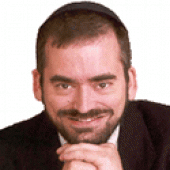Cash and Burn: A Storage David Stalks Goliath
In his new column, NWC editor David Greenfield explores the best and brightest start-ups making pings on our industry's radar. First up, a new Israeli company aiming to be
February 15, 2007


One of the great pleasures of following this industry for so long is that you get a chance to see some cool products go from back-of-the-napkin sketch to market success, and some smart folk go from snot-nosed inventors to globe-trotting CEOs. Apparently, the editor in chief agrees with me, as he asked me to start this column on the best and brightest start-ups.
Job one, of course, was finding a topic. I suggested that I spend a week living in and writing about Second Life. He told me to get a life. When I suggested a human interest story--namely, the rash of nervous breakdowns that will occur in six months when despondent gadget weenies run to their shrinks over iPhone performance anxiety (Apple's, that is, not Cisco's)--Wittmann threatened to send me to a different doctor. He's a big guy, so I took the hint.
I got serious and found a new Israeli start-up that aims to be the next EMC: a grid storage company that hopes to do for high-end storage what server grids do for computing. The company, XIV, is the brainchild of five graduates of the most elite unit in the Israeli army and includes Moshe Yanai, former head of EMC's R&D team.
Yes, yes, storage is boring, dull and, of course, insanely important. CEOs might talk about the revolutionary changes of supply-chain automation or how an app like Salesforce.com can improve closure rates, but IT guys know Salesforce is only as good as the underlying storage subsystem. That's why Tier 1 storage vendors can charge kings' ransoms for their systems. A typical price for an entry configuration EMC DMX-3, for example, runs $250,000 for up to 28.8 TB or about $8,700 per TB, not including snapshots and other storage software.Grid storage players have tried to undercut those prices, with mixed results. Features and performance haven't always been up to snuff. Now Ofir Zohar and his cadre of co-graduates from Talpiot--the MIT of the Israeli army's tech programs--claim to have produced a Tier 1 grid storage system, Nextra, with all of the replication, availability and hot swapability you'd expect from such a system, for just $5,000 per raw TB.
As for performance, Zohar says that in synthetic testing they held their own against EMC and 3ParData, but in the real world he's seen transaction performance gains of three to four times over the Series 3.
Granted that in 20 years in this business, I can't ever recall a vendor trumpeting slower storage speeds, but Zohar's claims carried more weight when a buddy of mine evaluating the system described performance as "phenomenal," and that testing had gone "beyond expectations."
Like other grid storage systems, Nextra's performance comes from a combination of fine-grained data chunking, mass parallelism, grid architecture and an advanced caching subsystem. Files are broken down into 1-MB increments, then written across volumes that span many drives. This massive parallel retrieval is further helped, Zohar says, by a unique caching design that situates more CPUs closer to cache, reducing latency--leading XIV to file some 50 patents.
The architecture helps in other ways. With data written across so many drives, a failed drive can be rebuilt within 15 minutes, and automatic recovery is possible even on a controller or processor failure. What's more, data replication does not impact performance, Zohar says. It also means storage planning becomes easier, with no need to define RAID groups and the like.Of course, there's still work to be done. For example, Nextra reportedly can't upgrade its system software without a system reboot, a big no-no in the Tier 1 world.
As to whether a bunch of Talpiot grads can win the hearts of ITers, consider this: Another Israeli company was founded by a Talpiot grad and a buddy or two. His name? Marius Nacht. The company? Check Point Software Technologies.
David Greenfield is NWC's editor. He has spent 20 years analyzing virtually every networking technology and has consulted to and assisted Fortune 500 enterprises in their technology acquisitions. Write to him at [email protected].

